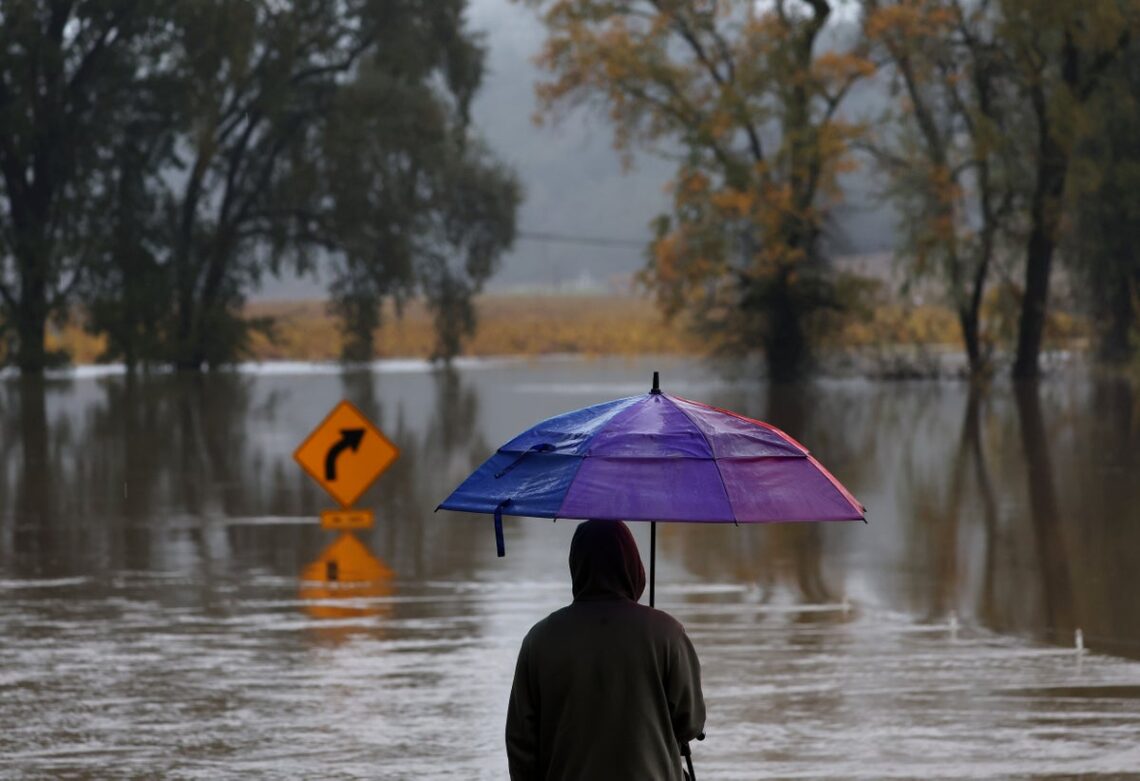December 13, 2024
4 min read
Storm-Hunting Planes Are Taking on Atmospheric Rivers to Improve Forecasts
Better forecasting would help communities prepare for the extreme weather from atmospheric rivers that causes an average of $1 billion in damages a year on the West Coast
A resident looks over a flooded road on November 22, 2024, in Forestville, California. A powerful atmospheric river brought heavy rains and wind to the San Francisco Bay Area for several days.
Justin Sullivan/Getty Images
CLIMATEWIRE | New England was still recovering Friday from a bout of extreme weather that dumped rainfall across the region and left tens of thousands of residents without power.
The midweek storm, fueled by a weather system known as an atmospheric river, produced wind gusts up to 60 miles per hour and likely gave Providence, Rhode Island, its wettest winter day on record — with as much as 5 inches of rain, according to preliminary reports.
Atmospheric rivers aren’t new to meteorologists, but they are notoriously difficult to predict.
On supporting science journalism
If you’re enjoying this article, consider supporting our award-winning journalism by subscribing. By purchasing a subscription you are helping to ensure the future of impactful stories about the discoveries and ideas shaping our world today.
Like their earthbound counterparts, atmospheric rivers move massive amounts of water. They can carry through the air a volume of water vapor that’s equivalent to more than 10 times the water flow at the mouth of the Mississippi River.
The extreme moisture goes hand-in-hand with heavy cloud cover, which is a big reason it’s hard for satellites to accurately observe them — and for meteorologists to develop forecasts.
But now scientists say they’re making strides in predicting their behavior.
Researchers with the National Weather Service and the Scripps Institution of Oceanography at the University of California San Diego have teamed up on a project…
Read the full article here

